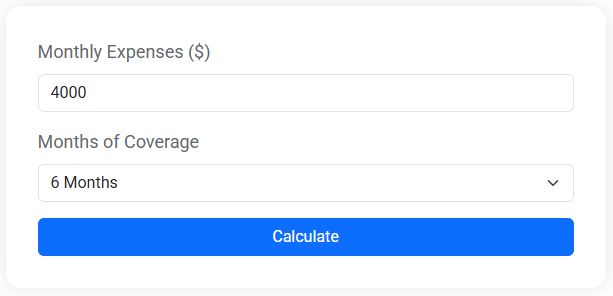Master Your Finances: The Importance of Budgeting

Mastering your finances through effective budgeting is crucial for achieving financial security and peace of mind. By creating a budget, you can track your income and expenses, prioritize spending, and set realistic financial goals, all while reducing stress and paving the way for long-term financial stability. Utilizing strategies like the 50/30/20 rule and leveraging technology can enhance your budgeting process, making it easier to maintain consistency and stay committed to your financial plan.
In a world where financial stress feels as omnipresent as the air we breathe, mastering your finances can seem like a Herculean task. The good news? It doesn’t have to be. Effective budgeting is like a superpower you can cultivate to achieve financial security and peace of mind. It’s about transforming your money from a source of stress into a tool that works for you. By creating a budget, you’re not just keeping track of dollars and cents; you’re setting the stage for a financially stable future.
Think of budgeting as your financial GPS. It helps you track your income and expenses, prioritize what truly matters, and set achievable financial goals. But it’s more than just numbers on a spreadsheet—it’s a lifestyle change that can significantly reduce stress and pave the way for long-term stability. Let's dive into how you can master this art and why it matters so much.
Why Budgeting Matters
Budgeting isn’t just for people who are struggling financially. It’s a tool that can benefit anyone, regardless of their income level. The primary purpose of a budget is to give you control over your money. When you know exactly where your money is going, you can make informed decisions about your spending habits. This control can help you avoid unnecessary debt and ensure that you’re saving for future goals, whether that's a dream vacation, a new home, or a comfortable retirement.
According to a study by U.S. Bank, only 41% of Americans use a budget, despite the clear benefits of tracking finances. Without a budget, it's easy to overspend and find yourself living paycheck to paycheck, even if you earn a decent salary. By creating a budget, you can identify areas where you might be overspending and make adjustments to improve your financial health.
Moreover, budgeting can impact your mental well-being. Knowing you have a plan can reduce anxiety and stress associated with financial uncertainty. It’s not just about the numbers; it’s about feeling secure and in control of your life.
Setting Up Your Budget
Getting started with a budget is easier than you might think. Begin by listing all sources of income. This might include your salary, any side gigs, or investment income. Next, jot down all your expenses. Be thorough here—include everything from rent or mortgage payments and utility bills to groceries, transportation, and entertainment. Don't forget to account for irregular expenses like car maintenance or annual insurance premiums.
Once you have a clear picture of your income and expenses, you can categorize them into needs, wants, and savings. This categorization helps you understand where you might be able to cut back. For example, dining out might fall under 'wants,' and you could reduce this to save more or pay down debt faster.
Tools like Mint or YNAB (You Need A Budget) can simplify this process. They allow you to link your bank accounts, making it easier to track spending and adjust your budget as needed. These apps can also send reminders and alerts to help you stay on track.
Emergency Fund Calculator
Wondering how much you should set aside for life's unexpected moments? Our Emergency Fund Calculator helps you quickly figure out how much you need to save to cover your expenses for 3, 6, or even 12 months. Whether you're building a financial safety net or planning for job loss, medical bills, or other emergencies, this tool gives you a clear savings goal to aim for — fast and easy.
The 50/30/20 Rule
One popular budgeting strategy is the 50/30/20 rule, which offers a straightforward framework for managing your finances. This rule suggests dividing your after-tax income into three categories: 50% for needs, 30% for wants, and 20% for savings or debt repayment.
Needs are non-negotiable expenses such as housing, utilities, groceries, and transportation. Wants include dining out, vacations, and entertainment. The savings category is crucial, as it covers everything from emergency funds to retirement accounts and debt reduction.
By following the 50/30/20 rule, you create a balanced approach to spending and saving, ensuring that you’re not depriving yourself of life’s pleasures while still prioritizing financial health. This method is flexible and can be adjusted to fit your unique circumstances, making it a great starting point for those new to budgeting.
Leveraging Technology for Better Budgeting
In today’s digital age, technology can be a game-changer for budgeting. Financial apps and software can automate many aspects of budget management, making it easier to stay organized and consistent. For instance, tools like Quicken or Personal Capital offer detailed insights into your spending habits, investment performance, and net worth.
These tools often provide features like expense tracking, bill reminders, and budget categorization, helping you to stay on top of your finances with minimal effort. For those who prefer a more hands-on approach, spreadsheet programs like Excel or Google Sheets can be customized to create a budget that fits your needs.
Additionally, many banks offer integrated budgeting tools within their mobile apps, providing real-time updates on your spending. Leveraging these technologies can save you time and energy, allowing you to focus on achieving your financial goals.
Staying Committed to Your Budget
Creating a budget is one thing; sticking to it is another. It’s crucial to regularly review and adjust your budget as your financial situation changes. Life is unpredictable, and your budget should reflect that. Whether it’s a new job, a significant life event, or an unexpected expense, your budget needs to be flexible to accommodate these changes.
Set aside time each month to review your budget and analyze your spending habits. Look for patterns and identify areas where you can make improvements. If you find yourself consistently overspending in certain categories, consider setting tighter limits or finding ways to cut costs.
Accountability can also play a significant role in maintaining your budget. Sharing your financial goals with a trusted friend or family member can provide motivation and support. As financial advisor Jane Smith suggests, "Having someone to check in with can keep you honest and focused on your goals."
Conclusion: Embracing the Budgeting Mindset
Mastering your finances through effective budgeting is not about restriction; it's about empowerment. By taking control of your financial situation, you’re investing in your future and laying the groundwork for a life free from financial stress. Remember, budgeting is a journey, not a destination. It evolves and adapts as you do.
Whether you’re using a tried-and-true method like the 50/30/20 rule or leveraging the latest financial technology, the key is consistency and commitment. With a clear plan and the right tools, you can transform your financial life and achieve the peace of mind that comes with knowing you’re in control. So, grab a cup of coffee, open up that spreadsheet or app, and start charting your course to financial freedom today.








